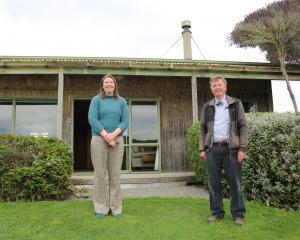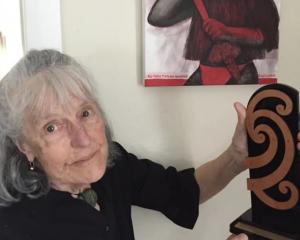
NO FRETFUL SLEEPER
A Life Of Bill Pearson
Paul Millar
Auckland University Press, $59.99, pbk
Reviewed by Lawrence Jones
Yet today, the novel is out of print (but is available online from the New Zealand Electronic Text Centre), the essay is known mostly to literary and social historians, and if you google "Bill Pearson" you are more likely to find items dealing with an American jockey or comic-book writer or a British film designer than with a New Zealand writer.
Paul Millar's excellent biography may serve to change that situation, for it both gives a full account of the contributions that Pearson's writings and public activities have made to New Zealand cultural history and also reveals the significance of his hitherto unknown private life:
Pearson was not only an eloquent commentator on the cost of the pressures for conformity that the New Zealand social pattern exerted on "different" and often talented individuals, but was also himself a silent example of a special type of victim of those pressures, the closet homosexual.
Millar shows in detail Pearson's relationship through a long life to many significant New Zealand concerns: he was politically concerned, a socialist who, like many of his generation, experienced a disillusionment with the USSR in 1956; he was active in the peace movement and had to wrestle with the issues presented by World War 2, somewhat uneasily settling for noncombatant participation in the army; he was concerned with Maori-Pakeha relations, was active in the University of Auckland Maori Club from 1956-63, serving as mentor and friend to a group of future Maori leaders that included Pita Sharples and Ranginui Walker, and was the historian of the depiction of Maori in New Zealand literature.
As writer and university lecturer he related to several generations of New Zealand writers, from Allen Curnow, Frank Sargeson and Charles Brasch to Bill Manhire and Witi Ihimaera and was the scrupulous editor of Sargeson's Collected Stories and the Auckland University Press "New Zealand Fiction" series.
Pearson's writings and his public activities were more than enough to make him an important cultural figure, but his special significance as biographical subject is in his "double life".
Drawing on interviews with Pearson and his contemporaries, on the voluminous Pearson papers and correspondence in the Turnbull Library, and on unpublished private correspondence and manuscripts, Millar gives a sober, detailed account of Pearson's consciously chosen double life within a society that for most of his lifetime criminalised overt homosexual activity and had an openly homophobic bias.
He gives a quiet account of Pearson's limitation of homosexual activity to "safe" environments, such as the London homosexual underground, his occasional unreciprocated crushes on other men, and his 37-year relationship with Donald Stenhouse (for which Stenhouse supplied information), a relationship that, with some interruptions and misunderstandings, lasted until Pearson's death.
The public and private Pearsons did, of course, interact.
While Pearson was editing Sargeson's stories, Coal Flat appeared; Sargeson, who had not previously been especially warm to the indrawn and private Pearson fell in love with the " 'true' Bill Pearson" he found in the implied author of Coal Flat, only to discover that Pearson respected him as writer but did not reciprocate the sexual feeling.
The 12-year history of the writing and publication of Coal Flat itself was complicated by Pearson's decision to excise his treatment of his protagonist, Paul Rogers, as a homosexual.
The novel itself may have gained by this decision, but Pearson as writer did not: when Sargeson urged him to continue with his writing of fiction, he replied "There are so many whole areas I can't touch, can't write about, and if it's anything that keeps me from writing again it's the knowledge that I'll expose myself by repetition of inclusion and repetition of omission".
As Millar comments, Pearson "was no fretful sleeper - the price of his perilously marginal state was constant vigilance".
That is a central theme of this major biography.
• Lawrence Jones is an emeritus professor of English.













